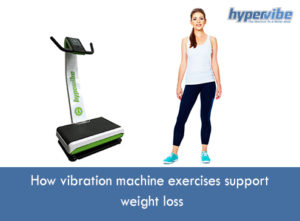How to Gain Weight with a High Metabolism: Strategies and Tips
If your metabolism is faster than average, you will need to consume more calories than the average person just to keep your weight the same. If you have a physically demanding profession or participate in sports on a regular basis, gaining weight may be a difficult task for you to do.
If you wonder how to gain weight with a high metabolism quickly despite the fact that you expend a lot of calories, you need to make consuming foods high in calories a daily habit and, if you don’t already, you should also engage in regular strength training.
What are the signs of high metabolism?
The terms fast and slow metabolism are frequently used to describe the speed of a person’s basal metabolic rate (BMR). BMR is essentially the rate at which a person burns stored energy sources (glycogen or fat) to release energy while at rest.
The term metabolism, on the other hand, is more complex and refers to the different processes that occur in the body in order to produce energy stores or bodily tissues (anabolism) or break them down (catabolism).
People with a rapid metabolism burn calories more quickly than those with sluggish metabolism and their weight loss process is faster. To maintain their weight, these persons often require a high calorie intake. On the other hand, people with slow metabolisms have a more difficult time losing weight and require a higher level of physical activity.
Some of the most common indicators of a quick metabolism are as follows:
- Having difficulty gaining weight;
- Anemia;
- Maintaining the desired weight is difficult;
- Sweating frequently;
- Being active or hyperactive;
- A higher heart rate;
- Enhanced breathing;
- Even when you are not doing anything, your body temperature is up;
- bowel and bladder movements on a regular basis;
- Appetite stimulation;
- Menstrual cycle irregularity;
- Insomnia;
- A lower body fat percentage.
What are fast metabolism symptoms?
Since we know that people’s metabolic rates can vary, you might be wondering, “How quick is my metabolism?” given that we know that metabolic rates can vary. There are a few indications that you might have a high metabolism, including the following:
- Despite the fact that you eat on a daily basis, you have a hard time putting on or maintaining weight.
- You have a high body temperature at all times, even when you are just sitting there doing nothing.
- Even after eating full meals or snacks, you frequently find that you are hungry or have an unquenchable hunger.
- You have a menstrual cycle that isn’t regular, or you don’t get your period even if you know you aren’t pregnant.
- Because of the increased rate at which your body processes information, you may have to urinate more frequently.
- If you believe you have a fast metabolism and you have a pang of increased hunger, you should make sure you are eating meals that are high in nutrients in order to limit the likelihood that you may binge on harmful foods.
If you are concerned about your symptoms or if your body is experiencing acute stress, which may be an indication of disease or a chronic health issue, talk to your primary care physician or another qualified medical professional.
Can you gain weight not eating enough?
The body is an extremely sophisticated machine in that it understands how to properly regulate its many functions in order to maintain homeostasis (keeping a constant weight). In the context of dieting and weight loss, this means that if you severely restrict your food intake, your body will simply lower its metabolic rate, burning less calories.
Of course, if your body continues to burn fewer calories every day, weight loss will become much more difficult, but the problem is far more serious.
If you don’t provide your body with the energy it requires to fuel your everyday activities, it will have to get it elsewhere. You might believe it will start with your stored body fat, but it will also start breaking down your lean muscle mass so that it can be converted to glucose and used for energy.
This causes a snowball effect in which you hold less muscle, causing your metabolism to slow even further. According to a study by The Biggest Loser competitors, if you have achieved remarkable weight loss very quickly, you may now need to eat significantly fewer calories than your colleagues to even maintain your weight.
Never reduce your calorie intake too rapidly. When you initially begin dieting to lose weight, the ideal thing to do is to remove roughly 300-500 calories each day from your regular diet, often known as your maintenance calories.’
Cutting just a few hundred calories per day will allow you to drop 1-3 lbs per week, which is approximately right to ensure you’re shedding fat and not muscle. If your weight reduction plateaus for a week or two, simply decrease a few hundred calories or consider adding some extra exercise.
What should I eat if I have a fast metabolism?
In order to achieve your goals while adhering to the Fast Metabolism Diet, it is imperative that you comply with all six of its criteria. They require abstaining from five foods that make up the bulk of many people’s diets, in addition to one element that is particularly common in beverages that are widely consumed:
- Wheat
- Corn
- Dairy
- Soy
- Refined sugar
- Caffeine
To make the elimination of these dietary staples, especially coffee, more manageable, add cinnamon to a morning smoothie and try feverfew or ginkgo biloba, which may aid with caffeine withdrawal headaches. Some folks, however, may find that giving up their morning cappuccino is a step too far.
Why is it hard to gain weight with a fast metabolism?
Whatever your motivation for wanting to acquire weight, or if you wonder how to gain weight with a high metabolism, there are a number of ways you can employ to bulk up.
We’ve listed some methods to help you acquire weight below.
Increase your calorie consumption
The single most important thing you can do to acquire weight is to consume more calories than your body requires. You can use this calorie calculator to figure out how many calories you need. According to the calculator, if you want to gain weight slowly and steadily, aim for 300-500 calories more than you burn each day.
If you want to gain weight quickly, aim for 700-1,000 calories more than your maintenance amount.
Remember that calorie calculators are simply estimations. Your daily calorie requirements may vary by several hundred calories.
You don’t have to count calories for the rest of your life, but it might be useful for the first few days or weeks to get a sense of how many calories you’re consuming and how to gain weight with a high metabolism. There are plenty of excellent tools available to assist you.
Increase your protein consumption
High-quality animal protein is needed for growth, development, and health, as well as how to gain weight with a high metabolism. Protein increases lean muscle mass, according to a 2020 23-person study.
Healthy people with minimal to intense physical exercise should consume 1.0 to 1.6 grams of protein per kilogram of body weight per day to enhance skeletal and muscular growth and strength.
Healthy individuals can consume 2–3.5 grams of protein per kilogram of body weight each day. Meat, fish, eggs, dairy, legumes, nuts, and others are high-protein foods. If your diet lacks protein, whey protein supplements can help.
Protein reduces hunger and appetite, making it tougher to consume enough calories. Protein can also increase heart disease risk. Talk to a doctor about increasing your protein consumption to safely gain weight.
Increase your carbohydrate and fat consumption
If you wonder how to gain weight with a high metabolism, many people try to restrict either carbs or fat. This may make it difficult to gain weight since it makes it more difficult to consume enough calories. If you want to gain weight, eat a lot of high carb and high fat foods. At each meal, consume a sufficient amount of protein, fat, and carbohydrates.
You should avoid eating plans like intermittent fasting. This eating plan can benefit weight loss and other benefits, but it can make it much more difficult to consume enough calories to gain weight. Eat at least three meals per day and aim to incorporate energy-dense snacks wherever possible.
Sources:
https://www.medicinenet.com/what_are_the_signs_of_fast_metabolism/article.htm
https://www.livestrong.com/article/510342-how-to-gain-weight-with-a-high-metabolism-and-a-highly-active-lifestyle/
https://flo.health/menstrual-cycle/lifestyle/diet-and-nutrition/facts-about-high-metabolism
https://diabetesstrong.com/why-not-eating-enough-food-can-make-you-gain-weight/













